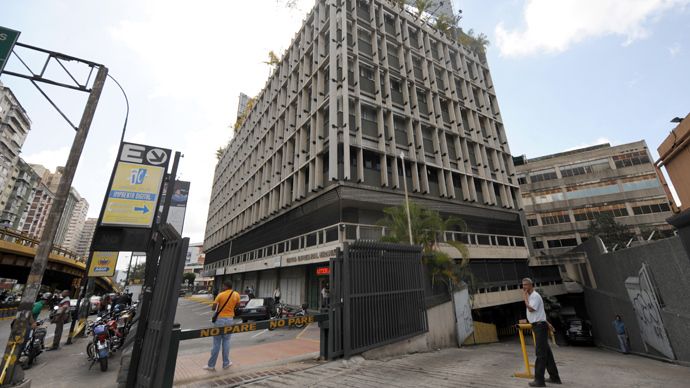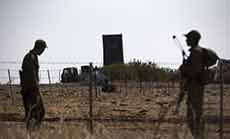Eye on The Enemy: New Intelligence Battalion on Egyptian Border, Right-Wing Extremists Map Arab Shops

Tammuz and Natanz
One cannot imagine how huge the dilemma Netanyahu is facing. In 1977, when Yitzak Rabin handed Begin the premiership, he conferred with him Iraq's efforts to produce a nuclear weapon - a piece of info confirmed by "Aman's" head Shlomo Gazit - and the diplomatic prevention efforts his Minister of Foreign affairs Yigal Allon has initiated.
The Labor party sought to thwart bombing the reactor. On May 10, when the pilots were set ready to take-off, Perez gathered the political committee of the party and with the consent of the conferees Perez filed a letter to Begin that opposes the operation.
Difference between "Entebbe" and Tehran
On Iran, the government led by Benjamin Netanyahu faces another difficult choice; either gives in to the transformation of Iran into a nuclear force or executes a military operation to eliminate its nuclear program. In both cases the political level needs to finalize the decision while the competent military system will be ordered to apply the decision with absolute sincerity.
ـــــــــــــــــــــ
Source:Hebrew newspapers, Translated and Edited by moqawama.org
Right-Wing Extremists Map Arab Shops In Al-Quds
Ozi Rosenberg
About a week and half ago, a merchant in "Mahane Yehuda" market noticed a Jewish young man with a skullcap trying to determine which of the booths employ Arabs. The fish merchant, Saleh, said, "A Jewish young boy came here and toured the market." He called "price tag" attack. But the interrogation revealed that the boy had a completely different goal in mind.
Meir Ettinger, 19, a resident of the West Bank settlement of "Yitzhar", said he was investigating on behalf of a project called Hebrew Labor, whose goal is "to warn the public against buying from businesses that employ Arabs."
Ettinger, the grandson of Rabbi Meir Kahane, was released and ordered to keep away from the market for two weeks. But last Thursday night, police detained four other young men from "Yitzhar" who were on the same mission and got the same orders.
Conversations with right-wing activists this week revealed that Ettinger and his comrades have been working on this project for several weeks now. Their goal is to map all of the businesses in al-Quds "Jerusalem" that use Arab labor.
They began in the northern neighborhoods of "Pisgat Ze'ev" and "Neveh Yaakov", then moved to the western neighborhoods of "Kiryat Moshe" and "Givat Shaul", and are now working on the downtown area, which includes "Mahane Yehuda".
"They came to my boss and asked him if he has Arabs working for him," related Yaakov Azaria, an electrician from Pisgat Ze'ev. "He said no, but I know they also went to others and asked them."
About 20 people are working on the mapping project. Most are "Yitzhar" residents who were recently served with administrative orders requiring them to stay out of "Judea" and "Samaria" for fear that they might carry out "price tag" attacks, and are therefore living temporarily in al-Quds. Their goal clearly is to prevent people from patronizing businesses that employ Arabs.
"A booklet with a list of places that employ Arabs will be published soon," said Moshe Ben Zikri, a well-known extreme right-wing activist in al-Quds. "That will be followed by hanging up posters and signs with these lists in the streets - just so that the public will know and be cautious."
The methodology is simple: If it isn't clear that a store does or doesn't employ Arabs, the activists simply walk in and ask the owner. If it does then it is marked with an X, if not it is marked by a checkmark.
Police found a list of several dozen businesses marked in Ettinger's pocket. "Yitzhar exiles" activity is a similar project of other right-wing groups that had been carried out in the past years.
In January, "Lehava" - For the Prevention of Assimilation in the Holy Land launched a campaign to give "kosher approval certificates" to businesses that don't employ Arabs. The Jewish-Arab coalition Shutafut-Sharaka expressed unsteadiness in right-wing media, and claimed that "both the official authorities and citizens are being racists and creating a public atmosphere that is endangering the Arabs' security and businesses, this isn't only a right-wing activity, yet Arabs are being stalked either by legislation or by marking shops employing Arabs." "If such a racist act was targeting Jews in another country, one can guess then how would "Israel" have reacted," the coalition added.
Yedioth Ahronoth - Shlomo Nakdimon
As "Iran's confrontation" moment of truth arrives, PM Netanyahu stands today in the same position of "Menachem Begin" 30 years ago. Back then, the situation was different and so as the hazards. No debate went public, but opinions differed in closed rooms. The decision at that time, as it is today, was placed on the shoulders of one person.
Begin described the complexity of the dilemma in a speech he delivered shortly after attacking the nuclear facility in Iraq on July 1981.
He said, "Let's assume we didn't take any action. What will the fate of our sons be when Saddam possesses two or three bombs alike to Hiroshima and Nagasaki? What if Iraqi anti-craft missiles shot our planes and killed our pilots, god forbids?"
Begin took care of this issue and supervised three courses: the diplomatic course: negotiations with France, Italy, Germany, and USA; the prevention course: demolishing Iraq's "under construction" Tammuz 1 reactor; and the military course: Operation Opera air strike. Begin reported the head of the labor part, Shimon Perez the latest updates of the government.
Begin who rummaged around for the person who leaked the timeline of the operation to Perez, worried about the fate of the pilots and ordered to cancel the operation. Perez consulted his fellows again on the 7th of July, and eventually stepped back.
Rabin participated in these two consultations and supported the overall trend of the operation but didn't approve the modus operandi. "The opposition can't be handed embargoed information via infiltration," he clarified.
As for Begin, he ordered to pass Rabin a report of a committee headed by Aharon Yariv that scrutinized the issue. Though the committee opposed the bombing but it affirmed all the "Israeli" intelligence data. In February 1991, nearly 10 years after the operation in Iraq, Saddam Hussein fired his rockets on the Israeli home front. While Begin closeted at his home, MK Yigal Horowitz headed towards all 119 MKs and asked them to sign a thank you letter for Begin's bombardment of the reactor.
"Thanks to that operation, Iraq's nuclear program was shut or suspended; however, if it didn't take place, god knows what would have happened to us. We are here to congratulate and thank you for the wisdom and courage you illustrated at that time," the letter recounted.
Two main opponents refused to sign the petition, Ezer Weizman and Shimon Peres. On the contrary other members of the political committee who also joined Perez in his opposition signed the petition, such as Motta Gur and Haim Bar-Lev and Yitzhak Rabin.
"I felt so satisfied about my decision," Rabin told me. Perhaps his signature was out of respect to Begin who supported the prisoners' release from Entebbe during Rabin's first term. Or it's just a gesture of regret for his opposition in the past.
Haaretz - Shlomo Gazit
The release of "hostages" in Entebbe was planned more than 35 years ago in circumstances quite different from those in which today's public debate about Iran's nuclear facilities sparked.
In Entebbe the "Israeli" government headed by Yitzhak Rabin, had to take a very difficult decision. All were partners in the will to free the hostages, but someone had to choose whether to negotiate with the kidnappers and release the prisoners according to the list that they provided or to achieve a military salvation.
Five days before the salvation operation in Entebbe, no decision was made yet; however, no one thought the political authorities will order the "Israeli" army to execute salvation operation without a plan of action.
The military system began planning the since the first moment before it was given permission to do so politically, but after the Chief of Staff presented the Plan of Action to the prime minister, we spent one hour in order to clarify all the obstacles that may occur during the process. The Prime Minister agreed to the plan only after he was persuaded. After all, if anything happens during the operation, whether good or bad will be his responsibility.
Likewise, on the political level no one can give orders to attack Iran's nuclear program unless someone from the military succeeds, based on the info in his possession, to reassert that the attack will at least paralyze, suspend and delay program for several years ahead. The intelligence agencies must demonstrate several possibilities of the Iranian response, whether it is direct or through its allies, as it should how immune is the home front and how will "Israel" react to this attack. The decision is always taken by the political ranks, but no one ought to think that an attack will take place if not approved by the competent military system.
A New Intelligence Battalion on Egyptian border
"Israel" Hayom - Lilach Shoval
In light of the revolution in Egypt that increased the terror risks in the south, "IDF" will establish a new intelligence-gathering battalion to be stationed along the "Israel"-Egypt border. Soldiers in the new battalion, which also includes female troops, are undergoing extensive combat and intelligence training, and some are also expected to be stationed along "Israel's" border with Jordan.
Officials yesterday (Sunday) said that a great deal of uncertainty remains about Egypt's future, and it is unclear what type of government will arise in Cairo after the parliamentary elections and to what degree the Muslim Brotherhood will be bolstered as a result. There have also been mounting concerns that political changes in Egypt could lead to an increase in attempted terror attacks originating from the Sinai, thus the "IDF" must be prepared. The "IDF" Southern Command has recently accelerated the construction of the final section of the security fence along the "Israel"-Egypt border to thwart the flow of infiltrators and help prevent terror attacks.
"IDF" Chief of General Staff Lt. Gen. Benny Gantz said last week that he believes construction of security fence between both countries will be completed by the end of 2012. "This is not a border between enemies, it is a border to contain growing risks," Gantz said during a meeting of the "Knesset Foreign Affairs and Defense Committee" last week.
Based on recent "IDF" assessments an additional brigade in the Southern Command was created under the leadership of Maj. Gen. Tal Russo. Route 12, which leads to Eilat , will be reopened to civilian traffic after it was closed following the August attack in Netafim. The route has undergone a major security upgrade and now includes observation posts, protective concrete barriers and several checkpoints to protect it.




